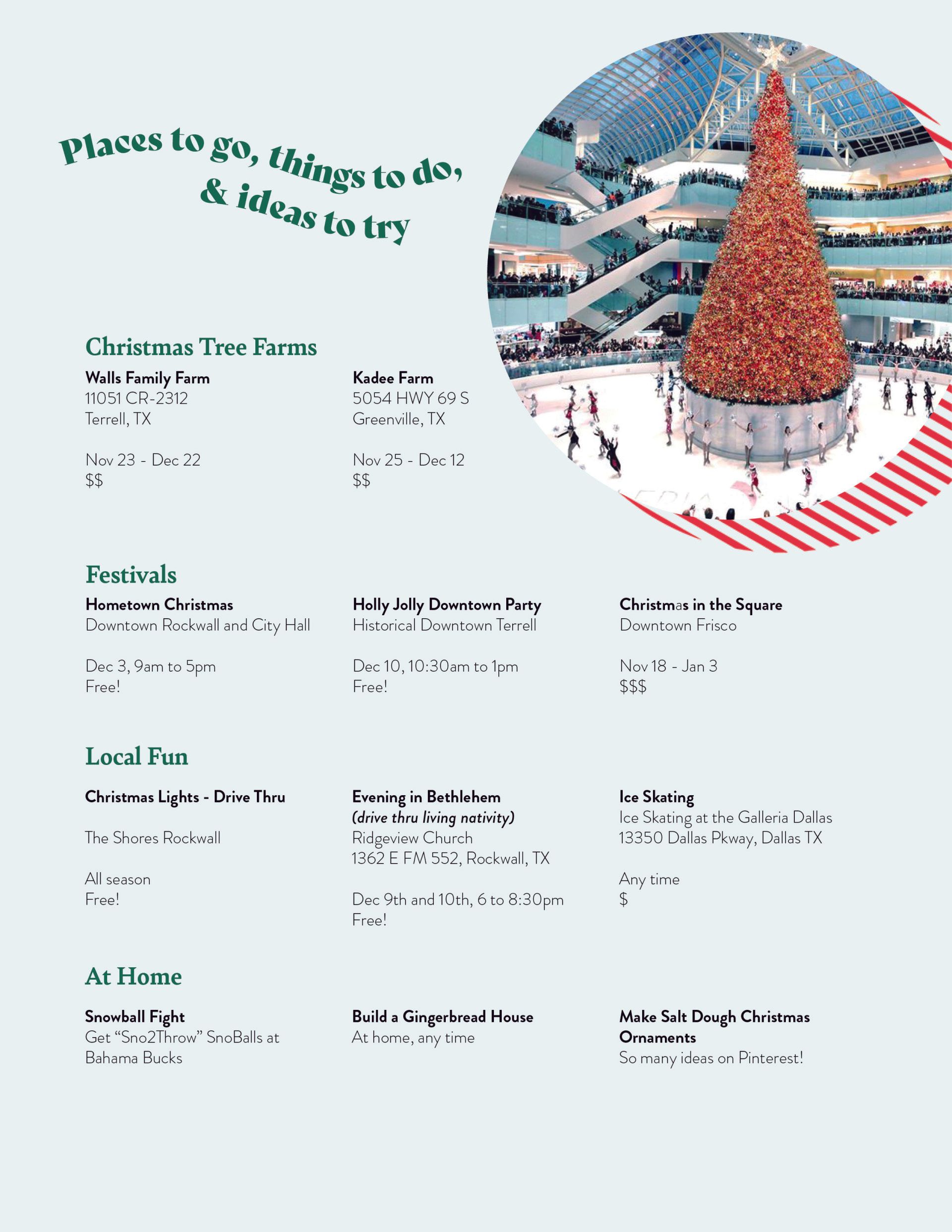Places, things, and ideas: The principle of rejoicing through Advent activities
Oh, the list of Christmas festivities and traditions… it likely either causes giddiness, like my son who was born December 1, sings Jingle Bells year-round, asking for Christmas lights on the house to be put up in October, or it possibly makes you want to run and hide due to the busyness and messiness it can cause.
Regardless of your desire for the hope of the magic that may accompany the Christmas season, the chances are high that you likely have at least a few memories where a festivity or tradition did not pan out exactly how you planned. Dilapidated gingerbread houses? Children with ungrateful, fussy attitudes? Have you ever managed to pull off a great meal but snapped at everyone in the process due to a heart distracted by the wrong motivation? Isn’t Christmas supposed to be magical? Maybe these seemingly failed efforts make you want to renounce all materialism associated with the holiday and instead try to do something that seems more spiritual, only to end up throwing your hands into the air at how unspiritual everyone responds when you seek to gather, sing, read and pray.
Where should our efforts be directed, and what attitude should we take in the process? Is it actually possible to move through this season with joy?
With Christ, the answer is yes! Psalm 16:11 says, “You make known to me the path of life; in your presence there is fullness of joy; at your right hand are pleasures forevermore.” Praise God this joy is true despite the seeming success or failure of our traditions and festivities.
But can we really be in Christ’s presence while planning and pursuing the messiness of Christmas activities? What we see in scripture is not that we should go “find joy” in some special or specific set of spiritual endeavors, but rather that we are to rejoice in whatever it is we are doing.
Philippians 4:4 says, “Rejoice in the Lord always; again I will say, rejoice.
1 Thessalonians 5:16 says, “Rejoice always.”
Psalm 118:24 says, “This is the day that the Lord has made; let us rejoice and be glad in it.
Romans 12:12 says, “Rejoice in hope, be patient in tribulation, be constant in prayer.”
Habakkuk 3:18 says, “Yet I will rejoice in the Lord; I will take joy in the God of my salvation.”
As you read these passages on rejoicing, consider these thoughts from author Rachel Jankovic:
“Christmas is the ultimate celebration of the material. Because Christmas is the time when God became man. Word to Flesh. Unfettered spirit to the hazards and joys and stresses of physical life. Think about it. Some people want to filter the material out of Christmas and morph it into some pure ethereal spirit religious day. And some people want to filter all the spiritual out of it and make it simply a holiday celebrating the purchasing power of plastic. But the power of Christmas is when spiritual and material meet. And it always has been. That is the joy of the season, that is the good news, that is the laughter and the paradox and the earth-shaking magic of Christmas. The infinite Word became a physical baby. Our celebrations aren’t supposed to be smooth, effortless bits of quiet either. They should be as big and as glorious and as spiritual and as physical as we can make them.”
So, read through this list of ideas, and consider what traditions you want to continue this year, and what new ones you may want to try. And regardless of what you plan and how it materializes, rejoice!
Rejoice in the Lord when you attempt gingerbread houses, and laugh if they fall apart. Rejoice always, even when someone doesn’t receive a gift how you hoped they would. Rejoice in the day that the Lord has made, even if it turns out completely differently than you planned.
Rejoice in hope, be patient in the messiness of traditions, be constant in prayer and repent quickly about your own heart when you feel the tendency to snap at others. Rejoice in the Lord and take joy in the God of your salvation in the midst of the festivities—because he is why we celebrate!






